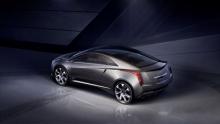Demand for electric vehicles as well as hybrid vehicles looks set to grow in China. The Chinese Government is looking to reduce pollution in major cities, with exhaust emissions known to be a major cause of the problem and electric vehicles in particular being regarded as one of a series of solutions to the issue.
However, the Chinese Government now looks set to reduce the subsidies that have been in place to tempt buyers to select electric vehicles or plug-in hybrids, instead of conventional internal com
Demand for electric vehicles as well as hybrid vehicles looks set to grow in China. The 2719 Chinese Government is looking to reduce pollution in major cities, with exhaust emissions known to be a major cause of the problem and electric vehicles in particular being regarded as one of a series of solutions to the issue.
However, the Chinese Government now looks set to reduce the subsidies that have been in place to tempt buyers to select electric vehicles or plug-in hybrids, instead of conventional internal combustion engine vehicles. At present buyers of plug-in hybrids will receive a subsidy of US$5,632 while buyers of electric vehicles will receive a subsidy of $9,656. These subsidies will be reduced gradually at a rate of 10%/year during this year, and through into 2019. Buyers of fuel cell vehicles will continue receiving the same rate of subsidies as at present.
Meanwhile in South Korea,236 Hyundai Motor has plans to unveil its first electric vehicle in 2016. The company says that compared to existing hybrid EVs, the mid-sized car will be lighter by around 30% as it features lighter materials, new batteries and better system management. The batteries for the EV will be provided by chemical manufacturer LG Chem.
In addition the firm intends to increase its range of plug-in hybrid EV (PHEV) models from four at present to 12 by 2020. Small-sized cars, an electric sports car and a sports utility vehicle (SUV) will also be introduced by Hyundai Motor. In a move to expand its battery sourcing channels for its electric SUVs, Hyundai has reached a consensus with SK Group's battery affiliate to purchase batteries through 2017.
However, the Chinese Government now looks set to reduce the subsidies that have been in place to tempt buyers to select electric vehicles or plug-in hybrids, instead of conventional internal combustion engine vehicles. At present buyers of plug-in hybrids will receive a subsidy of US$5,632 while buyers of electric vehicles will receive a subsidy of $9,656. These subsidies will be reduced gradually at a rate of 10%/year during this year, and through into 2019. Buyers of fuel cell vehicles will continue receiving the same rate of subsidies as at present.
Meanwhile in South Korea,
In addition the firm intends to increase its range of plug-in hybrid EV (PHEV) models from four at present to 12 by 2020. Small-sized cars, an electric sports car and a sports utility vehicle (SUV) will also be introduced by Hyundai Motor. In a move to expand its battery sourcing channels for its electric SUVs, Hyundai has reached a consensus with SK Group's battery affiliate to purchase batteries through 2017.






